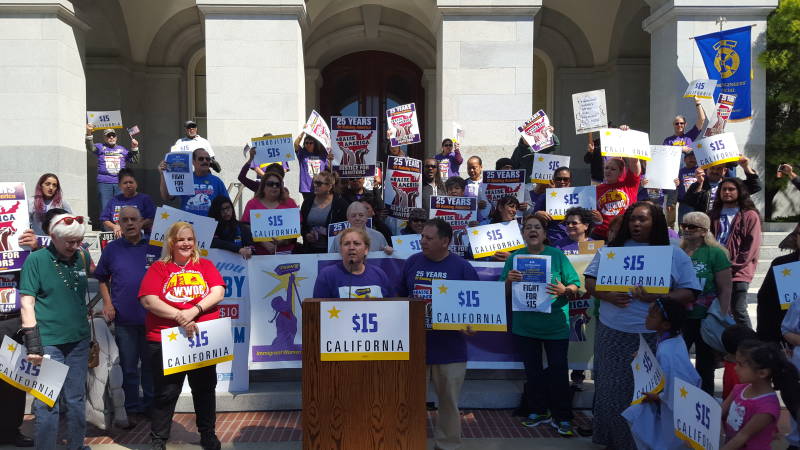You can see our full list of key ballot measures here, or check out a sample of the highlights:
Legalizing marijuana, either medicinally or recreationally: You can read more about these ballot initiatives -- part of a nationwide trend toward the legalization of pot -- here.
In short, Florida, Arkansas and North Dakota legalized (or greatly expanded legal access to) medical marijuana, while Massachusetts, Nevada and California legalized recreational marijuana.
That's as of 1:45 a.m. EST. There are more ballot measures regarding marijuana, where the result has not yet been projected.
Raising the minimum wage: Maine, Arizona, Colorado and Washington all voted to increase the minimum wage to at least $12 an hour by 2020. Washington approved a raise to $13.50 an hour by 2020; Colorado calls for $12 by 2020, but with the wage pegged to the cost of living after that.
In South Dakota, a ballot initiative called for lowering the minimum wage for non-tipped employees under 18, but it was roundly rejected by voters, with more than 70 percent opposing it.
Death penalty: Oklahoma and Nebraska both voted in favor of the death penalty.
In Oklahoma, a referendum declared that the death penalty is not considered cruel and unusual punishment in the state; in Nebraska, voters opted to overturn a bill that eliminated the death penalty.
We're still waiting for results on California's two competing death penalty initiatives; one would end the death penalty and the other speed up the process.
Strengthening gun control measures: In Washington, voters approved a firearms access measure. As we've previously reported, it would "allow people to get a court order that would temporarily ban people who show signs of mental illness or violence or another behavior that might indicate that they could harm themselves or others from possessing firearms."
A similar law was already on the books in California -- which has some of the nation's strictest restrictions on guns. Voters just approved one more gun control measure. KQED's Marisa Lagos described the initiative last month:
"Lt. Gov. Gavin Newsom wants to go even further and bring bullets into the equation. Depending on whom you ask, it's a question of either common sense or constitutional rights: Should ammunition be treated like guns are, with background checks for buyers and limits on who can sell?
"It's not the only question posed by Proposition 63, but it's the one that's received the most attention. Authored by Newsom, the initiative would also require gun owners to report lost or stolen firearms to law enforcement; set up a process for convicted felons to give up their guns; and fully ban magazines that can hold more than 10 rounds of bullets."
It passed with strong support, according to AP projections.
Results are still pending for background check proposals in Maine and Nevada.
Legalizing assisted suicide in Colorado: CO-106 made assisted death legal "among patients with a terminal illness who receive a prognosis of death within six months."
Colorado is only the sixth state to approve some form of physician-assisted death. Its bill was modeled after Oregon's law, Colorado Public Radio reports. The law requires patients to self-administer a doctor-prescribed drug.
"In recent years, Democrats in the state Legislature had attempted to pass legislation allowing for assisted suicide, but were rejected by Republicans in the split Legislature," the Los Angeles Times reports. "Opposition to the measure came mostly from religious groups."
Copyright 2016 NPR. To see more, visit http://www.npr.org/
